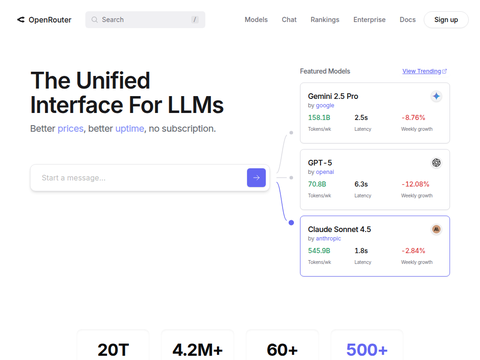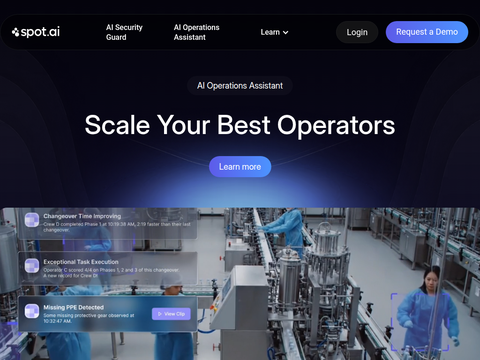Recently, OpenAI introduced a significant proposal urging the U.S. government to support the development of the artificial intelligence (AI) industry through substantial funding and resource allocation. This initiative not only highlights the potential lobbying and policy challenges that the emerging Trump administration may face but also underscores the critical role of AI in the nation's future competitiveness.
At a Washington think tank event, Chris Lihan, OpenAI’s Head of Global Affairs, provided a detailed overview of the proposal. According to OpenAI's documentation, the proposal advocates for the creation of special economic zones with minimal regulations to incentivize the development of new AI projects. Additionally, it recommends that the U.S. Navy assist in constructing a series of small nuclear reactors to supply power to data centers. OpenAI also proposes a "North American Accord" to facilitate AI collaboration among U.S. allies, thereby enhancing collective strength.
This proposal emerges as President-elect Donald Trump announces plans to revoke former President Joe Biden’s AI executive orders. While Trump has criticized these orders for "hindering" innovation, he has also acknowledged the increasing demand for advanced AI technologies in the U.S., indicating potential common ground on certain issues. Earlier this year, Trump’s allies drafted a plan aimed at reducing tech regulations and investing in military technology.
OpenAI cautions in its proposal that without government investment and support, the U.S. risks losing its technological edge in AI to China and other competitors. The proposal states, "We need visionary leadership, bold actions, and large-scale development. These choices will determine whether a nation leads or falls behind in technological innovation, with profound implications for economic competitiveness and national security."
This initiative marks a further escalation in OpenAI's relationship with the U.S. government, advocating for increased federal investment, subsidies, and support for the AI sector. OpenAI CEO Sam Altman has actively lobbied both U.S. and Middle Eastern governments to back a multi-billion dollar infrastructure plan aimed at developing new chip technologies.
Executives from AI and major tech companies widely agree that advancing AI is crucial for America's future. They warn that without maintaining a technological advantage, China could leverage AI to constrain U.S. military and commercial power. Political leaders also emphasize that efforts by the government to promote the AI industry enjoy broad bipartisan support.
China’s high-tech ambitions have raised alarms in Washington. Since 2015, China’s "Made in China 2025" initiative has explicitly targeted competition with the U.S. in key technology sectors. In recent years, China has significantly narrowed the AI gap with the U.S. and even gained advantages in certain areas, causing concern among American officials.
While the U.S. remains a leader in AI, China has achieved advantages in some areas by reducing labor costs and other measures. The Biden administration has sought to advance U.S. technology by investing in new computer chip factories and restricting the export of high-end AI technologies to China, aiming to hinder China’s AI progress. The Trump administration has also indicated a tough military stance toward China.
However, training and operating AI software is extremely expensive and energy-intensive. Large tech companies must purchase thousands of advanced computer chips and continuously perform computations, consuming vast amounts of electricity and using water for cooling. This leads to increased energy usage and rising energy prices for consumers. Nevertheless, major tech firms continue to actively build new data centers and install large quantities of computer chips.
During his campaign, Trump acknowledged the significant energy requirements of the AI industry, stating, "They need unprecedented amounts of power to successfully lead in AI." Consequently, OpenAI’s proposal also recommends the implementation of a "National Transmission Highway Act," which would invest in upgrading the power grid, high-speed internet, and new energy supplies to support AI training.
Additionally, OpenAI calls on the government to commit to purchasing energy from new power projects to mitigate the risks for private companies undertaking these projects and to fund new employment initiatives to train data center personnel. The "North American Accord" proposal would also establish an economic alliance of Western Hemisphere countries, facilitating the seamless cross-border flow of capital, expertise, and key supplies, thereby enhancing the U.S.'s economic strength in the AI race.
Although some tech leaders argue that improvements in AI software and computer chip efficiency can reduce the high energy costs associated with the technology, Altman contends that even with these enhancements, a substantial increase in computing power remains essential. Therefore, OpenAI's proposal urges the U.S. government to implement a series of measures to support the AI industry, ensuring the country's leadership in this crucial field.








